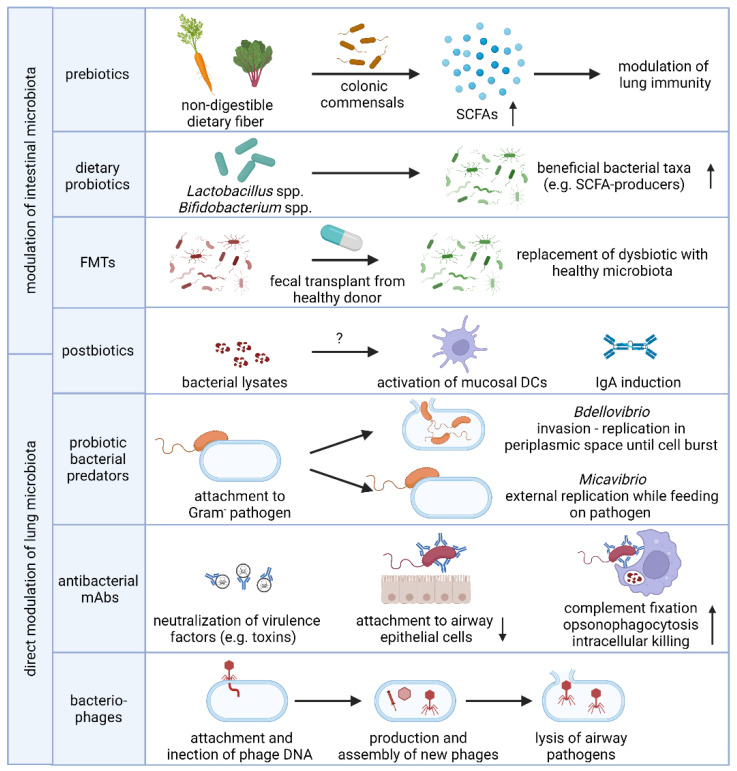Figure 2.
Microbiome-based strategies to prevent and treat respiratory disease. Modulation of the composition and/or activity of the intestinal microbiota to promote lung immunity aids in the defense against respiratory bacterial infections and management of chronic lung disease. Intake of non-digestible dietary fiber drives the production of the bioactive SCFA metabolites by colonic commensal bacteria while the use of probiotics aims to modify the composition of the microbiome towards beneficial bacterial taxa, including SCFA-producers. The precise immunomodulatory mechanism of intranasally or orally administered postbiotics remain elusive but may be in part due to mucosal DC and IgA induction. In addition, the lung microbiota can be directly modulated by selectively eliminating bacterial pathogens using probiotic predatory bacteria, antibacterial human mAbs or strain-specific bacteriophages. Abbreviations: SCFAs, short-chain fatty acids; FMT, fecal microbiota transplant; DC, dendritic cell; IgA, immunoglobulin A; mAb, monoclonal antibody. Figure created with BioRender.com.

